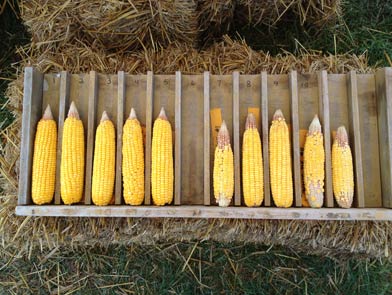Genetic Modification: Saint or Sinner?
One topic
that has both the scientific and public communities divided is the use of
genetically modified crops. The USA is the biggest user of genetic modification,
mainly for cash crops such as maize so they can meet the extraordinary demand
of their huge population. This has given plant biotechnology a bad name, and so
many people dismiss GM crops as a tool to fight hunger in developing countries.
In their paper, Brink et al (1998) discuss the potential of plant biotechnology
in Africa. They note the high use of genetic modification in developed
countries, and believe that whilst Africa is unlikely capable of funding its
own research, it can benefit from the methods used by countries such as the USA.
In this way, Africa can work with other nations in order to use biotechnology
to grow not only drought tolerant crops, but also crops that are also
virus-resistant.
Some years ago, the United Nations Industrial Development Organization held a meeting in Nairobi where agriculturalists and biotechnologists met to discuss their priorities for the Africa. The need to develop drought-tolerant maize was high on their agenda. Maize is widely used across Africa for making staple meals such as mielepap- a dish similar to porridge, and many Africans depend upon this basic yet filling dish to survive. The organisation Water Efficient Maize for Africa has partnered with CYMMIT, an international maize and wheat breeding organisation, to introduce the gene cspB into some African maize varieties. The gene allows for plants to survive in a dehydrated state for months, and to completely rehydrate within 3 days once watered (Thompson, 2015). This trait would help to prevent crop failure due to the high seasonal variability in rainfall discussed in my previous post.
Before
starting this blog, I was an advocator for the use of GM crops in Africa, and
had never given much thought to the possible issues associated with them. Quite
ignorantly, I had thought supplying starving people with the means to grow food
was a no-brainer. As it turns out, plant biotechnology in Africa might not be
all it’s cracked up to be. The African
Centre for Biosafety reported that they believe the supposed benefits of
GM foods are being used as PR tools by biotechnology companies. They predicted that
in reality, the nationwide commercialisation of affordable drought-tolerant seeds is some way away.
I recently
read a very insightful published PhD thesis which looked at how different
perceptions of the risks of genetic modification are influencing the use of GM
crops in different countries (Hall, 2010). The paper highlighted that some key
food markets, notably the EU, are only very small contributors to the huge
uptake in GM crops in recent years. Another paper by Arthur and Yobo (2014)
discusses this further, and explains that people in developed countries are
sceptical about eating GM foods due to the potential toxicity of novel genes,
such as the aforementioned cspB gene. This made me wonder why, if here in the
UK we are dismissive of genetically modified foods, do we accept it as a
solution to hunger in Africa?



Comments
Post a Comment